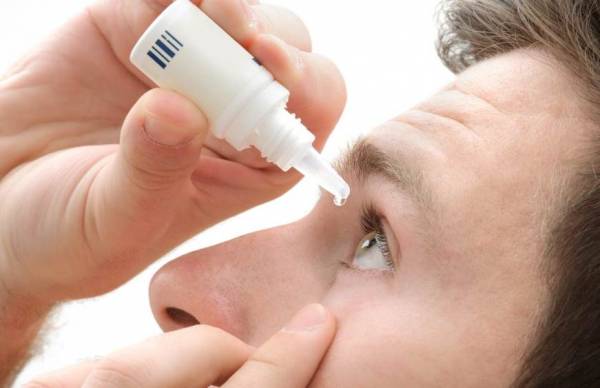Artificial tear drops and their complications
You can use eye drops if you suffer from dry eyes. You can soften your eyes by applying eye drops several times a day. Generally, people use these eye drops arbitrarily to eliminate redness, itching, burning, and other unpleasant feelings. There are also side effects that can be treated in this area with these simple eye drops. We will mention it.
The chemicals in some of these drops should not be exposed to your eyes for long periods of time. This is why you should take good care of them, use certain kinds of them, and never use eye drops without your doctor’s permission.

Artificial tears come in two types:
-
Holder for eye drops
-
Preservative-free eye drops
Preservative-containing artificial tears are more durable. A preservative is a chemical that prevents bacteria from entering and growing. In an eye drop bottle, these drops last for a long time. Preservatives in these artificial tears, however, can cause itching. Ophthalmologists usually recommend not using these drops more than four times a day for this reason.
Artificial tears without preservatives are usually less dangerous, but they must be disposed of after use. As soon as you put these drops in your eye, you should throw them away. It would be helpful to buy more of these drops. If your dry eye condition is mild, you should use the drops once a day, but if it is severe, your doctor may recommend using them four times a day.
Artificial tears: dangers
Preservatives and thickeners are common ingredients in these drops. It is possible for these substances to cause long-term allergies inside the eye. There are also risks associated with their content:
The presence of preservatives
Preservatives in artificial tears increase their lifespan, but they also cause eye sensitivity, so using them more than four times a day is prohibited. You should use non-preservative drops if your dry eye is severe and you need to use them more than 4 times a day. Check the label carefully for retention of artificial tears.
Pollution
It is possible for the tip of your eye drop bottle to become infected. Artificial tears hit the eye’s surface when they are directed toward the bottle by this contamination. This contamination is also increased by its contact with other surfaces, so maintaining these artificial tears requires extreme caution. Purchase enough of these drops, throw them away quickly, and do not touch them. Don’t get the tip of these drops in your eyes. Follow the instructions and warnings on the slides.
A seal is applied to artificial tears
There are several artificial tear bottles with loose heads, according to the World Health Organization. It is not advisable to use these artificial tears, but on the other hand, you should pay attention to their global and reputable brands. Never loosen or detach the ring on the eye drop bottle.
Eye drops side effects
The most serious side effect of taking eye drops arbitrarily is suppressing the symptoms of the disease and aggravating its causes.
It is important to note that artificial tears can sometimes cause side effects. After using the drops, you may experience blurry vision for a few minutes, so you should avoid driving for a few minutes.
It is also possible for a person to experience allergic reactions. There are 10% of drug reactions that are allergic. Symptoms of allergic anaphylactic reactions include hives, hot flashes, swelling, tinnitus, and dizziness. If you notice any of these symptoms, do not take these drops and seek medical attention immediately.
Artificial tears: other important points
-
Keep yourself away from dirt and dust before using eye drops and if dry eyes persist, use them.
-
Use these drops and artificial tears if your dry eye condition is mild, but be sure to read the label and follow the instructions.
-
Never use too much eye drops that contain a retainer. The bottle should be discarded immediately after use. If you experience any side effects, contact your doctor immediately.
-
Make sure eye drops are handled with hygiene. When using eye drops, speak with your doctor about your medications.


